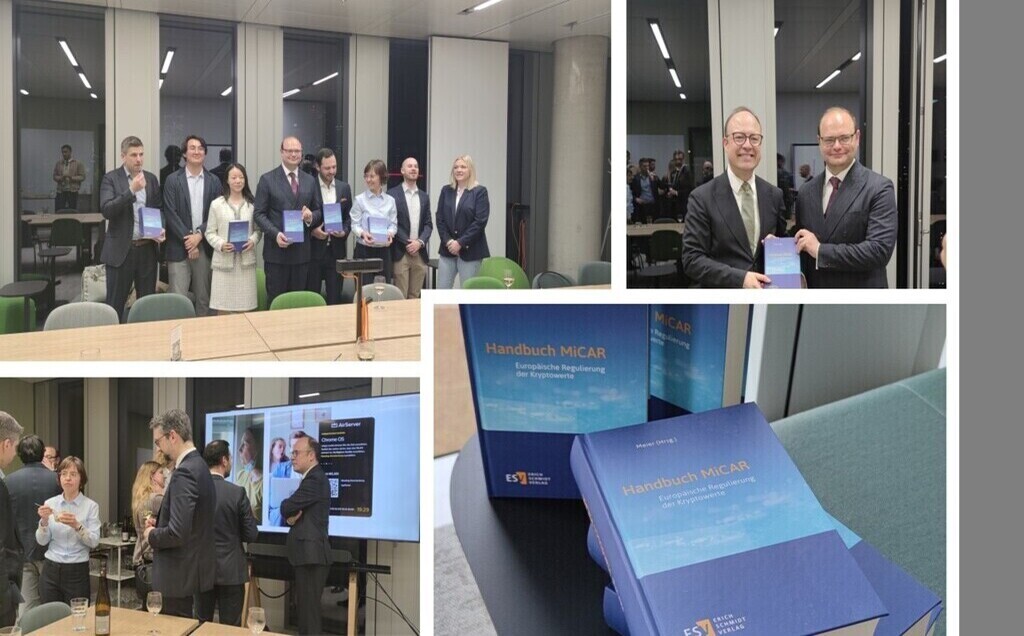The Markets in Crypto Assets Regulation (MiCAR) will regulate numerous activities as crypto asset services as of December 30, 2024. German providers of crypto asset services will not be allowed to operate without a corresponding BaFin license unless their business falls under an exemption regulated by MiCAR. One of the crypto asset services that will be regulated under MiCAR in the future is the provision of crypto advisory services. The wording of the crypto asset service itself initially does not specify which particular advisory services will be covered by the permission requirement and thus by the requirement for a BaFin license. However, MiCAR contains a definition in this respect that brings more clarity. According to this definition, advice on crypto assets includes offering or making personalized recommendations to clients or agreeing to make such recommendations at the request of the client or at the initiative of the crypto asset service provider providing the advice with respect to one or more transactions relating to crypto assets or the use of crypto asset services. The somewhat cumbersome definition clearly shows that advice on crypto assets can by no means refer only to transactions involving crypto assets. Rather, it is also intended to cover advisory services that relate to the use of crypto asset services. The definition thus goes further than its counterpart in the MiFID regulation, which only refers to transactions with financial instruments.
BaFin License according to MiCAR Only for Personalized Recommendations
According to the above-mentioned definition, the focus of the provision of crypto advisory is therefore not on the subject matter of the advice, but rather on the offer or provision of personalized recommendations to customers. These can then relate either to transactions with crypto assets or to the use of crypto asset services. The latter can be those offered by the advisor itself or those offered by third parties. A recommendation will be considered personalized if it refers specifically to the personal circumstances of the advised person, i.e. if it takes into account his personal financial situation, his experience and his willingness to take risks. With regard to the necessity of a BaFin license, it will make no difference whether the advisor actually takes the personal circumstances into account. Rather, it will be sufficient to justify the obligation to obtain a BaFin license under MiCAR that the advisor gives the appearance to his client that he is providing him with personalized advice tailored to his needs. With respect to the recommendation of crypto asset services, crypto advisors will have to appreciate in particular the personal needs of their clients with respect to the use of crypto asset services. However, not only the crypto asset service type itself will be relevant, but also the conditions of a service offer in light of the customer’s personal circumstances, insofar as the use of specific offers of a specific crypto asset service provider is advised.
MiCAR Obligates Crypto Advisors to Comply with Specific Compliance Obligations
Crypto advisors will not only have to apply for a BaFin license under MiCAR but will also have to fulfill specific compliance obligations once the MiCAR license is granted. In particular, they will have to inform their clients whether they provide their advisory services independently. All potential conflicts of interest that could be capable of impairing the advisory service must be disclosed. For example, if preferential advice is given on the use of crypto asset services from a particular provider, this must be disclosed. Crypto advisors must also provide their clients with detailed information on how they conduct the analyses on which their recommendations are based. Furthermore, according to MiCAR, crypto advisors must provide comprehensive information about costs and ancillary costs. This includes the costs of their own advisory services as well as costs of the crypto assets recommended to or marketed to the client and the client’s payment options in this regard. Finally, crypto advisors are subject to extensive disclosure obligations with regard to the risks associated with recommended crypto assets or crypto asset services. Crypto advisors must also point out any risks of loss, limited liquidity and the fact that crypto assets are not covered by the commonly known deposit protection systems.
Attorney Lutz Auffenberg, LL.M. (London)
The competent lawyer for questions regarding crypto asset services and BaFin license under MiCAR in our law firm is Attorney Lutz Auffenberg, LL.M. (London).
subscribe to Newsletter






